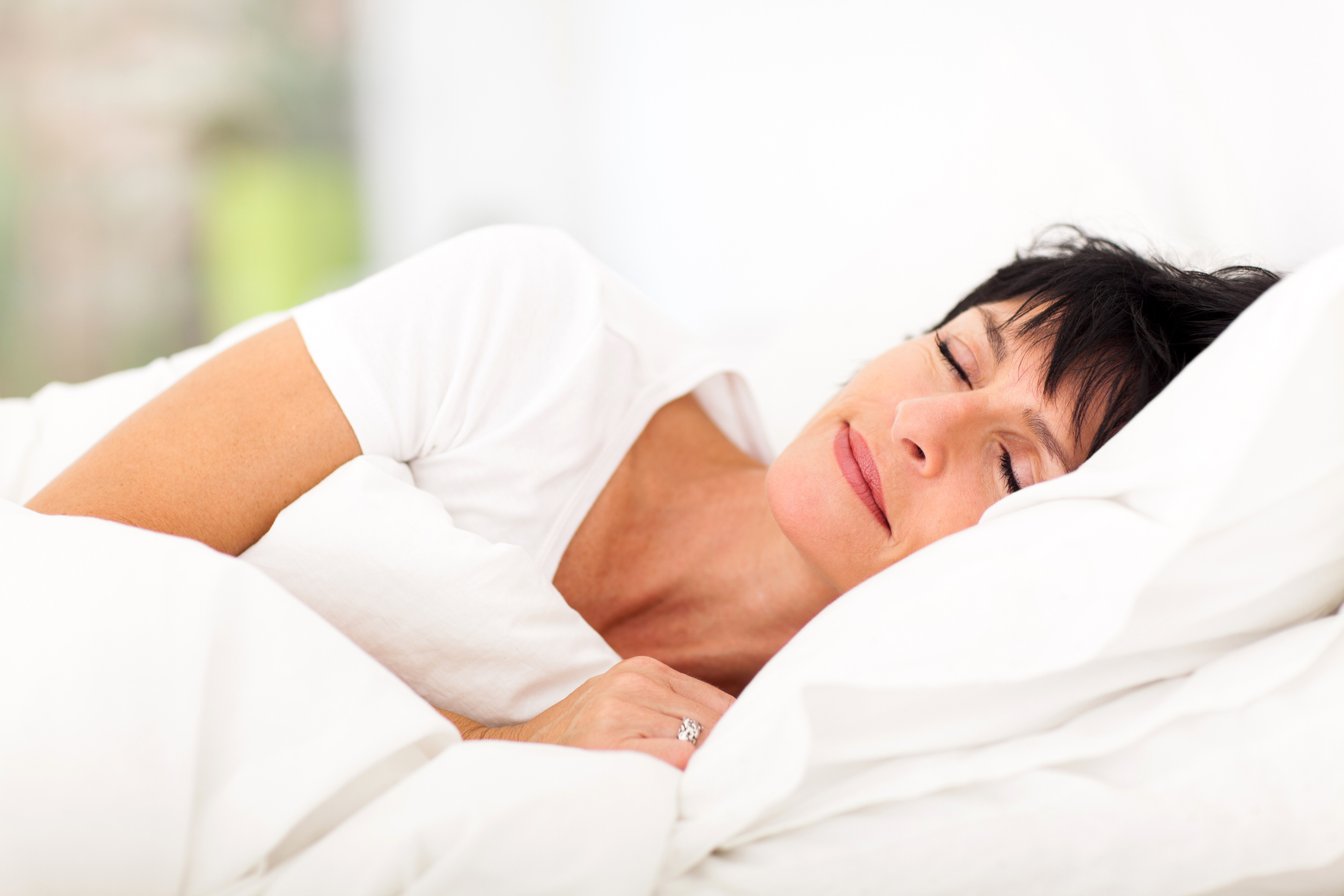How to Manage Your Menopause Sleep Disruption
Among the many symptoms women might experience as they approach menopause, one of the most difficult to cope with might be insomnia. It is common for both women entering perimenopause and who are post-menopausal to complain about sleep trouble in their middle age.
Sleep disorders are not only frustrating to manage on their own—they can also exacerbate other symptoms of menopause and make day-to-day life more challenging. Stress, mood disorders and fatigue can all be worsened if you aren’t getting a full night’s rest, making you feel worse and worse as the days go on.
In order to manage the symptoms of perimenopause and menopause more easily, it’s important to identify what is behind your menopausal insomnia and look for ways to relieve it.
How menopause affects sleep
As your estrogen and progesterone levels fluctuate and gradually decline as you get closer to menopause, your body will experience a number of changes. Some of these changes can affect the quantity and quality of your sleep, leaving you feeling tired and irritable in the morning.
The following things may contribute to sleep problems during menopause:
- Hormone disruptions: Fluctuations in hormones—both sex hormones and melatonin—can play a role in sleep disruption. Estrogen and progesterone help to promote sleep, and their fluctuating levels may cause more sleep interruptions. Additionally, it is believed that melatonin production decreases with age. Because melatonin plays a crucial part in regulating circadian rhythms and the sleep-wake cycle, lowered levels of the hormone could reduce sleep quality.
- Hot flashes: Hot flashes, which often cause uncomfortable, total-body overheating and sweating, often plague menopausal women in the middle of the night. These night sweats and hot flashes can wake you and keep you up for minutes at a time, reducing your overall sleep quality. These symptoms tend to be worse in the summer, where already warm bedroom climates can make you feel more uncomfortable and make it harder for your body to regulate heat.
- Stress and anxiety: Menopausal women often report more significant feelings of stress, irritability, depression and anxiety. These feelings may be due to hormone fluctuations, major life changes, discomfort or a combination of the three. Regardless of the cause, stress and anxiety can lead to insomnia as your mind races, making it difficult to fall asleep or rousing you in the middle of the night.
- Chronic pain: Unfortunately, aging often comes with physical changes and the onset of diseases that lead to aches and pains. Although some causes of pain may not be directly tied to menopause, they may occur around the same time and make it more difficult for you to fall asleep comfortably.
Remedies for menopause insomnia

If menopause symptoms are keeping you awake at night, there are multiple things you can try to help ease your symptoms and enjoy more peaceful nights of rest. Here are a few non-pharmacological options to start with:
- Good sleep hygiene: One of the most important things to do—not just during menopause but throughout your life—is to practice good sleep habits and hygiene. Try to regulate your sleep schedule by going to bed and waking up at the same time each day, aiming for seven to nine hours of sleep a night. Make your bedroom a calm and inviting place without light or sounds, avoid caffeine hours before bedtime and take time to relax before bed.
- Watch what you eat: Some aspects of your diet might be worsening symptoms of menopause, including unhealthy fats and excessive sugars. Other foods, such as spicy meals, might trigger hot flashes. By paying closer attention to your diet throughout menopause—focusing on eating more protein, omega-3 fatty acids and probiotic-rich foods—you might be able to minimize the symptoms that keep you up at night.
- Supplements: Certain supplements may help relieve particular health and lifestyle problems you experience during menopause. Taking a melatonin supplement two hours before bed might supplement the melatonin your body naturally produces, alleviating hormone-induced insomnia. Other supplements designed for menopause management may provide more comprehensive relief.
- Sleep light: If hot flashes and sweating are making you uncomfortable and rousing you from sleep, take proactive steps to combat the heat. Keep your bedroom cool by using fans, opening windows or turning on the air conditioner. Also, dress in light, breathable fabrics and use breathable bedding to keep your body temperature lower.
- Stress relief: Stress relief during the day and before bed can help you let go of some of the things that keep you up at night, as well. Take ten minutes to meditate, journal, read or take a relaxing bath. By quieting your mind, you may be able to fall asleep more easily, stay asleep longer and live a happier life overall.
Adjusting to the changes menopause brings can be challenging, but there are ways to manage symptoms and live a calm and healthy life. If your sleep disruption is prolonged, speak with your doctor to see if there are additional options to help you cope.


Leave a comment